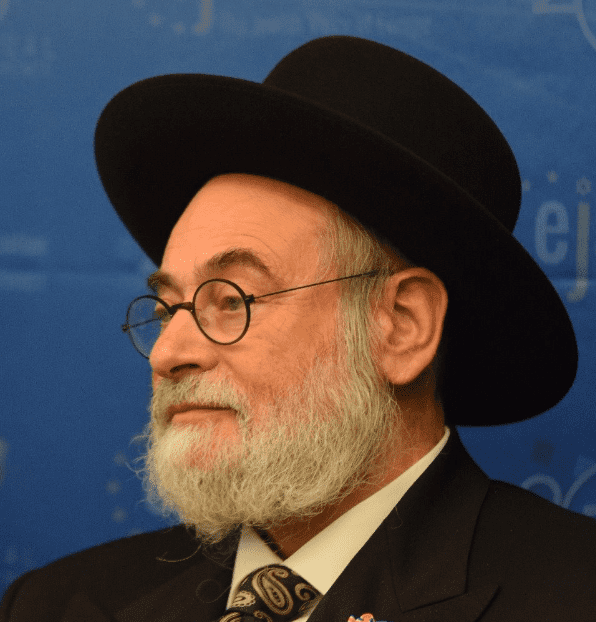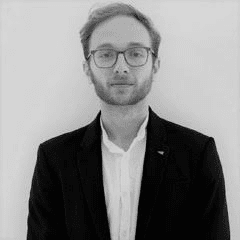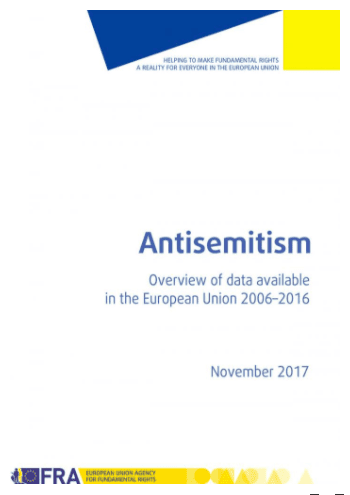Onze columnist Bas Belder had een gesprek met Ethan Gabriel Bergman van de Universiteit Maastricht over het Nederlandse academische klimaat voor Joodse studenten en docenten. “Als je je baan wilt behouden, zeg dan niet dat je Joods bent en Israël steunt.” Het dringende advies van een universitaire docent aan zijn Joodse collega.
Aan welke manifestaties van Jodenhaat én Israëlhaat stond/staat u bloot als student aan de Universiteit van Maastricht?
Bergman: Of we dat nu willen of niet, wij worden als Joodse studenten altijd aan Israël gekoppeld. De Joodse studentengemeenschap walgt van het faciliteren van puur eenzijdige anti-Israël evenementen binnen de universiteit. Dat gebeurde bijvoorbeeld bij de rechtenfaculteit in Maastricht tijdens een sessie over “Palestijnse vrouwen in de strijd voor vrijheid – Toen en Nu”. De discussie draaide louter om de ontkenning van Israëls bestaansrecht.
In plaats van ons te verliezen in zulke kansloze debatten, geven wij als Joodse studenten nu prioriteit aan eigen manifestaties in plaats van ons steeds opnieuw tegen haatcampagnes te moeten keren.
Met de groeiende desinformatie over Israël voelen Joodse studenten zich op de campus alleen maar onveiliger. Welke uitbarstingen van emoties ook loskomen jegens Israël, Europese Joden worden daar steevast het slachtoffer van als medeschuldigen. Zie de toename van het antisemitisme in Europa in mei tijdens de terreuraanvallen van Hamas op de Joodse staat.
Op onze universiteit opereert Free Palestine Maastricht onder de noemer dat de organisatie voor “vrijheid van meningsuiting” staat. De universiteit gaat hiermee akkoord. Deze beweging is evenwel evident antisemitisch door de demonisering en delegitimering van Israël en het hanteren van dubbele standaarden jegens de Joodse staat. Free Palestine Maastricht verkoopt haar antisemitisme onder de noemer van “vrijheid van spreken over Palestina”, een ‘recht’ dat “zionisten” wensen in te perken.
Een poging van onze zijde om als Joodse studenten in gesprek te komen met Free Palestine Maastricht mislukte. Wij werden gebrandmerkt als “zionisten die de Joden niet vertegenwoordigen”.
Als Joodse studenten willen deelnemen aan een solidariteitsbijeenkomst met het zwaar vervolgde moslimvolk van de Oeigoeren in China, vangen zij bot. Een Davidsster naast de Oeigoerse maansikkel op een banier kan absoluut niet volgens een zeer activistische hoogleraar. Die davidsster staat volgens de professor “symbool voor genocidale intenties”, daarmee trek je zijns inziens “geen linkse mensen en moslims bij de protesten aan”.
Nog nare persoonlijke ervaringen qua antisemitische uitingen?
Bergman: Het heeft niet rechtstreeks betrekking op de universiteit, maar de deur van mijn appartement moest het tijdens carnaval 2021 ontgelden. De mezoeza was op de grond gesmeten en er was een swastika in de deur gekerfd. Interessant genoeg verenigde dit incident de Joodse studentengemeenschap voor een poosje, totdat we opnieuw onze maskers moesten opzetten tijdens het weer oplaaien van het conflict tussen Israël en Hamas. Twee weken lang werden wij als Joodse studenten bedreigd door medestudenten. Uiteindelijk deed een Joodse studente haar beklag bij de decaan. “Ze had er om gevraagd”, kreeg ze eventjes te horen. Gedemoraliseerd is deze studente omwille van haar persoonlijke veiligheid gestopt in Maastricht. Weer andere Joodse studenten werden gestalkt. Ik kreeg zelf maandenlang anonieme dreigtelefoontjes.
Met dit alles in het achterhoofd, wil ik samen met andere Joodse studenten werken aan een betere toekomst. Wij willen die verschrikkelijke periode achter ons laten waarin onze eigen hoogleraren brieven ondertekenden die opriepen tot een academische en economische boycot van Israël in Nederland. Dat zelfs de meesten van mijn professoren daaraan meededen, heeft de Joodse gemeenschap ernstig geschokt. Ook het feit dat een groot aantal hoogleraren een BDS-brief ondertekenden, vervreemde hen van Joodse studenten.
Tot vorig jaar ontbrak de Internationale Gedenkdag van de Holocaust op de universitaire kalender van Maastricht. Die was vervangen door “Chocolate Cake Day”. Bovendien vormden officiële Joodse feestdagen tot op dit jaar geen geldige reden om uitstel van een deadline of een examen te verlenen.
Hoeveel van uw medestudenten in Maastricht zijn eigenlijk Joods?
Bergman: Ik schat dat er rond de 150-175 Joodse studenten bij de Universiteit van Maastricht zijn ingeschreven. Hun precieze aantal is momenteel moeilijk te bepalen. Van slechts zo’n 75 weten we het precies. De redenen voor deze situatie zijn velerlei: zij voelen zich niet op hun gemak om als Joods naar buiten te treden; ze zijn niet op de hoogte van de huidige Joodse studentengemeenschap of hebben (nog) geen Joodse medestudent getroffen, die hen kan introduceren.
Maar zodra Joden zich op de universiteit werkelijk comfortabel gaan voelen, zullen we zeker een sterke groei zien. Samen met de universiteit streven we naar zo’n werkelijk inclusieve, veilige situatie.
Kijken we naar heel Nederland: hoeveel Joodse studenten en docenten telt de academische wereld? En zijn zij ook op enigerlei wijze verenigd tegen manifestaties van Jodenhaat?
Bergman: Wij zijn niet verenigd. Een schatting is daarom vrij lastig. Daarbij komt dat tal van Joodse studenten het niet comfortabel achten voor hun identiteit uit te komen. Uit angst voor stigmatisering.
De documentatie van antisemitische voorvallen is eveneens lacuneus. Joodse studenten staan sowieso bijzonder sceptisch tegenover het nut van het melden van individuele incidenten. Wat verandert dat? Daarom worden heel wat uitingen van Jodenhaat eenvoudigweg niet geregistreerd.
Van de Universiteit van Maastricht weet ik dat er zo’n half dozijn Joodse en Israëlische professoren en stafleden werken. Stafleden vertelden mij dat de naam van Israël niet mag worden genoemd in bepaalde discussies en publicaties. Een collega van een Joods staflid gaf hem eens te kennen: “Als je je baan wilt houden, zeg dan niet dat je Joods bent en Israël steunt.”
Deze stafleden en professoren zwegen praktisch tijdens het conflict in mei tussen Israël en Hamas. Opstaan tegen de heersende grove desinformatie zou hun veiligheid in gevaar brengen, idem hun baan. Het punt is echter, dat zwijgen Joodse docenten en studenten niet helpt. Want als het zogenoemde Israëlische antisemitisme weer eens piekt, zij evengoed lijden als degenen die wel de moed hadden hun mond open te doen.
U bent ook actief bij de Europees Joodse Associatie (EJA). In welke mate beïnvloedt ‘de factor-Israël’ de activiteiten van de Joodse gemeenschappen in Europa?
Bergman: Zij krijgen te horen dat universiteiten en studentenorganisaties alleen met hen willen samenwerken als Joodse studenten zich evenzeer tegen Israël keren en geen enkele link leggen met Israël tijdens gemeenschappelijke evenementen. In de praktijk komt dit erop neer dat Joden de uitgangspunten van de BDS dienen te steunen om geaccepteerd te worden. Het aan Israël gerelateerd antisemitisme is trouwens in extreme mate present in Nederland bij de politieke en sociale faculteiten, met de professoren in de rol van medeplichtigen.
Het gebrek aan interactie met Joden en Israëli’s vergiftigt onze academische wereld onder de noemer van “sociale gerechtigheid”. Hoe meer anti-Israëlische, antisemitische retoriek, des te minder zullen Joden zichzelf als zodanig kenbaar maken en zich assimileren omwille van eigen toekomstig welzijn en carrière.
Bij welke initiatieven ben u rechtstreeks betrokken om Jodenhaat tegen te gaan op academisch terrein alsook om de Joodse presentie op te bouwen?
Bergman: Eerst even een persoonlijke noot: als ik bij een ontmoeting merk dat ik de eerste Jood ben die mijn gesprekspartner ooit is tegengekomen, stimuleer ik deze persoon mij te vragen wat hij of zij ook maar wil. Voor de grap noem ik dat “Jewsplaining”. Win ik zo vrienden, dan blijken zij de sterkste bondgenoten van Joden en Israël te zijn die ik ken. Dat gaat niet zonder slag of stoot. In veel gevallen verliezen Joodse studenten hun niet-Joodse vrienden om politieke redenen, denk aan de BDS-beweging, zo weet ik uit mijn contacten in Maastricht.
Het is echter de verantwoordelijkheid van alle Joodse studenten open te zijn over hun identiteit, pas dan dient zich het perspectief van niet-Joodse medestanders aan.
Binnen de EJA breng ik Joodse studenten uit heel Europa samen tijdens “Bootcamps”. Gezamenlijk brainstormen we dan drie dagen lang hoe onwetendheid over Joodse cultuur en leefwijze het hoofd te bieden, idem de rondwarende Jodenhaat op Europese campussen. Wij preciseren dan tegelijk onze praktische aanpak, evenzo hoe het best Israël te representeren.
Via de zogenoemde “Diplomatic Council” binnen de EJA trainen we een netwerk van toegewijde studenten per land in omgaan met de media, debatteren, in het openbaar spreken en educatie. In het vertegenwoordigen van Joden en Israël in Europa spelen we schaak, geen dammen.
Ook werken we samen met parlementariërs en andere politici, zoals ministers van onderwijs, om academische instellingen te motiveren zich pro-actief op te stellen, dat wil zeggen inclusief tegenover Joodse en Israëlische studenten. Tegenwoordig ben ik daartoe ook actief binnen de organisatie StandWithUs Nederland.
De EJA buigt zich nu over de vraag welke informatie moeten wij gaan geven aan de staf en decanen van universiteiten. Conform wat opperrabbijn Jacobs niet moe wordt te herhalen: “Educatie, educatie, educatie!” Dat is de enige manier waarmee wij als Joodse studenten kunnen gedijen op de universiteiten.














